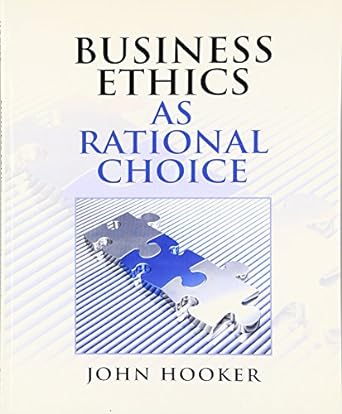An economics game.3 A popular economics game teaches an important lesson in rationality. You are granted $100
Question:
An economics game.3 A popular economics game teaches an important lesson in rationality. You are granted $100 along with the option of donating any portion of the grant (from $0 to $100) to an anonymous person. That person, to whom the donor is anonymous, is given the option of accepting or rejecting the donation. If the gift is rejected, both parties forfeit the money. No collusion is allowed.
Clearly, rational self-interest requires that you donate a very small positive amount (say, one cent) and that the recipient accept it. If you donated zero, the recipient could reject it without penalty, but it is irrational to turn down even one cent.Actual behavior is quite different. The average donation tends to be in the range of $30–40, and close to half give away $50. This behavior is normally cited as a demonstration that people are irrational.Yet this follows only if rationality is interpreted in the narrow sense of rational self-interest. How can the observed behavior, particular the behavior of those who donate half the money, be seen as entirely rational from a Rawlsian perspective?
Step by Step Answer:






